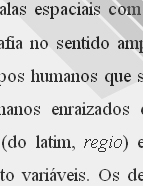

................................
It does not overlook the economic and social life, providing a truly comprehensive perspective that touches on a multitude of topics. The work ends with an account of the "tragic hours," which includes military incursions, natural disasters, and a popular uprising in 1862. In this extensive study, the author uses chronicles, academic studies, press reports, and printed sources, particularly the Arquivo dos Açores [Azores Archive] as well as unpublished sources from the Tombo da Câmara da Horta [Archive of the Municipality of Horta]. Significantly, another area in which the author excels is genealogy, with the work on Famílias Faialenses: subsídios para a história da ilha do Faial [ Faial Families: contributions for the history of Faial island] (1922). Another paradigmatic example of a local scholar is Urbano de Mendonça Dias (1878-1951), an Azorean from the island of São Miguel. He graduated in Law from Coimbra and held various public offices on his island. With a monarchist and regionalist inclination, his love for his homeland and literary activity led him to history, fiction, and theatre. In the field under study, his extensive work has a historical-ethnological bent, clearly evident in A Vida de Nossos Avós [The Life of Our Grandparents] (1944-49, 9 vols.), but he does not neglect the consultation of archives and primary sources to construct his narratives. The diversity of topics addressed in his works and the valuable information gathered make him truly important for the history of the Azores and the island of São Miguel. Marcelino Lima and Mendonça Dias are, ultimately, representative of a type of local historian who follows the traditional historiographical line inherited from the 19th century: the selected themes, the methods of collating the collected material, the interest in genealogies and figures, the ethnographic bent of some of his texts, the concern with the use of documents, and the narrative style all reflect this connection to liberal and romantic history, tempered by a more scholarly concern with archival research.
In an innovative vein, the study of Alberto Sampaio (1841-1908), As "Villas" do Norte de Portugal [The Towns of Northern Portugal] is worthy of mention, published across several fascicles in the journal Portugalia: Materiais para o Estudo do Povo Português, directed by Ricardo Severo in Porto. A profound connoisseur of the rural Minho region, Sampaio developed a socio-economic history study to understand the origins of the patterns of land occupation specific to that area, the organisation of society, and the way of life of rural populations. To this end, he traces back to the Roman period and the transformations of the early Middle Ages which, in his interpretation, shaped the fundamental characteristics of the region.
